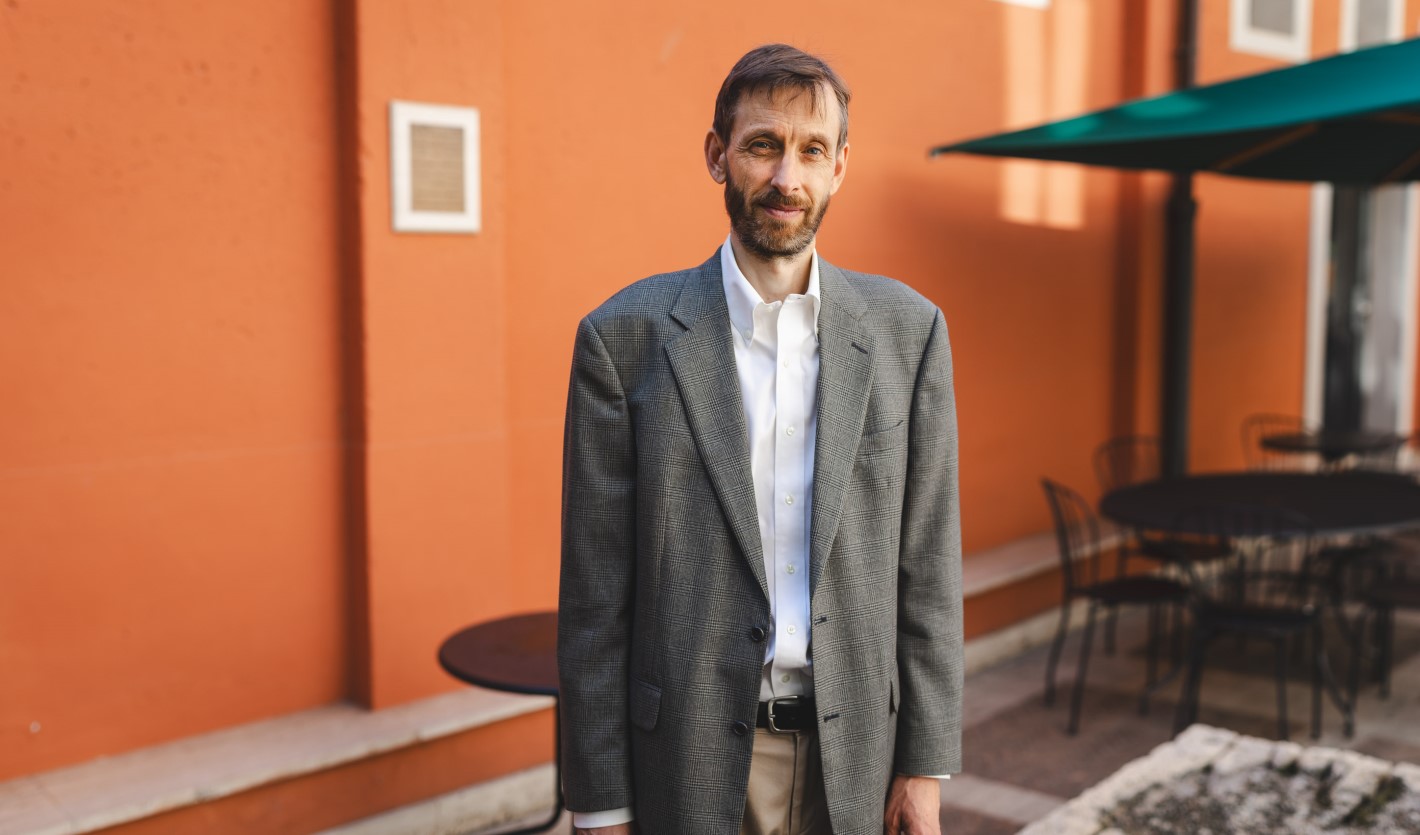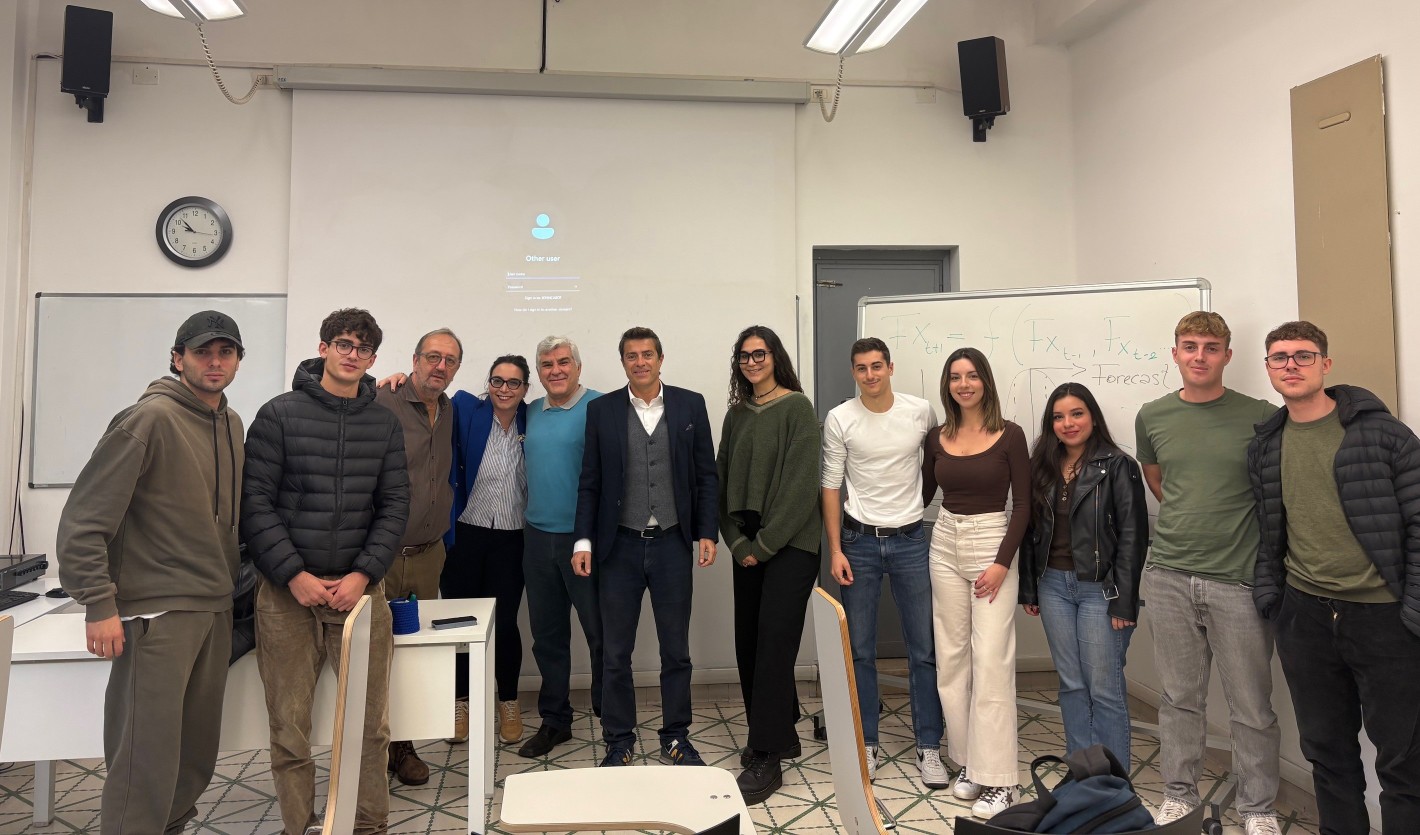David Levy holds a B.A. from the University of Chicago and a Dottorato di Ricerca from Sapienza University of Rome. He is the author of Wily Elites and Spirited Peoples in Machiavelli's Republicanism (Lexington Books, 2014) as well as articles on Plato, Aristotle, and liberal education. Professor Levy recently published an Italian translation of Maimonides' philosophical commentary on Pirkei Avot (Giuntina, 2025).
What brought you to JCU?
After graduating from the University of Chicago and doing a stint in the business world, I visited Rome and like so many others, fell in love with the city and with Italy. I ended up doing my doctoral studies here at Sapienza University, and luckily for me, JCU happened to be looking for a philosophy instructor at about the time I got my degree.
What inspired you to choose philosophy as your field of study?
Philosophers sometimes say some very odd things, and I found that I wanted to know whether any of those odd things were true.
What is your approach to teaching?
I think that Socrates in Plato’s Republic puts it best: teaching is not primarily about putting knowledge into the soul of the student but about turning the soul in the right direction, that is, toward the most important questions and problems.
Is there anything you hope students will take away from your classes?
An understanding of the enduring worth of classic texts and of what it means to study these texts carefully.
What would you consider a “classic text” and why?
A classic text is a text of the highest class. That doesn’t tell us much, but it does tell us that there is a hierarchy. Which texts belong to this class is, of course, a matter of legitimate debate. There is no fixed “canon.” But practically everyone agrees that, for example, Aristotle, Shakespeare, and Jane Austen are authors of classic texts. What do such texts have in common? For one thing, they transcend their time and place as well as other accidents like nationality and race. That’s why W.E.B. Du Bois, the great African American writer and civil rights activist, could say, “I sit with Shakespeare and he winces not.” Classic texts achieve this transcendence because of their profound insights into the human as human. Great authors understand us better than we understand ourselves.
Why do you think it is important to study philosophy today?
I believe philosophy is necessary today for the same reason it was necessary in the time of Socrates: many of our opinions on important subjects (such as justice, virtue, beauty, and piety) prove upon examination to be questionable because they contradict other opinions that we also hold. This realization is unsettling but also liberating, if it motivates us to try to acquire better opinions about these same subjects. Great philosophers can help us in this effort. Of course, the fact that they disagree among themselves complicates things, but that’s also part of the fun.
Tell us a bit about your new book, Commento alle Massime dei Padri.
This book is the first complete Italian translation of a commentary by the medieval rabbi and philosophical thinker Maimonides on Pirkei Avot or “Chapters of the Fathers,” a collection of ethical and religious teachings which has always been one of the most popular works in the Jewish tradition. Maimonides, very unusually for a rabbi, interprets many of its teachings in light of Aristotelian philosophy (though he almost never mentions Aristotle by name). He harmonizes the Jewish tradition, based on divine revelation, with the Greek tradition of philosophy and science, and thus does for Judaism what thinkers like al-Farabi and Averroes did for Islam and Thomas Aquinas did for Christianity: he shows how one can be a loyal member of a religious community and at the same time engage in rational inquiry into the nature of things. More quietly, he also indicates the tensions between religion and philosophy. I believe that his commentary, though written over eight centuries ago, can still be useful to those who want to think about this subject.
Do you have any upcoming works we should look out for?
I’m working on a paper on the relation between music and character. In short, was Plato right that tunes and rhythms can not only entertain us but help form our character and our souls? If so, maybe we should take music more seriously than we often do.












